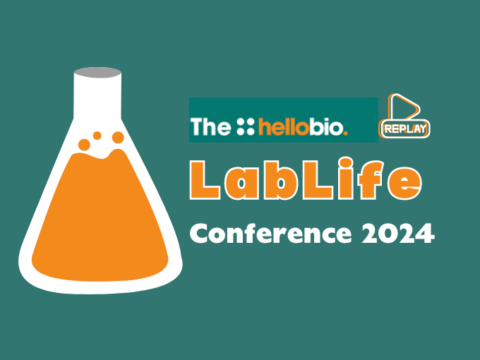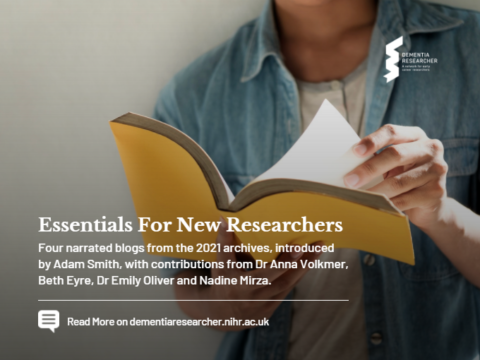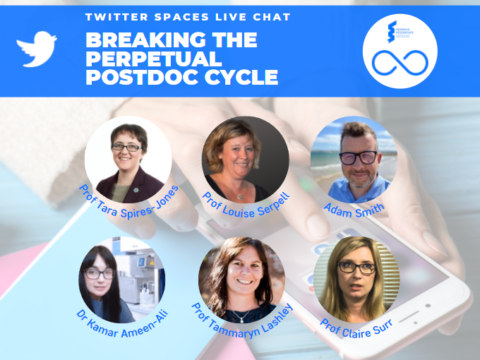You have just completed/are completing your undergraduate degree, and now you are looking for a postgraduate course that will help you jumpstart a dementia-related career. But there are so many options and you have no idea where to begin! That’s understandable. In this article we take you through some of the factors that you need to consider before picking the correct dementia course for YOU and how to make the most of it thereafter!
Postgraduate courses are often mentally and financially intensive. At the outset, it may be helpful to decide if your plans and lifestyle are most compatible with a full-time course, a part-time course, distance learning, or other formats. More information about general factors to consider before starting a postgraduate programme is available, are available in a blog written by Adam Smith, earlier this year.
With respect to dementia-related courses, there are three main factors to consider and decide upon before making your choice: Core Focus, University Resources, Funding
Core Focus
Your core focus is your broad area of interest. Ask yourself “WHAT aspect of dementia am I interested in?”. If your answer is something like “I wonder how dementia people are cared for, that’s what I can see myself doing long-term.”, you would need to look at a course very different from someone who answered, “I’m curious about how ApoE4 affects one’s chances of developing Alzheimer’s disease.”
We have rounded up a list of dementia-related courses for you to help you make this decision. These courses can be roughly split into: Neuroscience, Dementia Research, Social and Health Care, and Personal Interest.
Neuroscience:
If you are looking for a course that helps you study dementia, other neurodegenerative conditions, and other brain-related conditions from a biochemistry perspective or are interested in applying your physics and computational knowledge to techniques such as neuroimaging, you might be interested in broader neuroscience courses which allow you to undertake dementia modules. These courses provide cognitive and clinical frameworks to understand various neurodegenerative conditions via state-of-the-art neuroimaging techniques such as fMRI, PET, etc. They also focus on understanding the workings of the brain at molecular and cellular levels. You can find a list of some such courses here.
Dementia Research:
If you are looking for courses that will give you a strong foundation for a career in research – specifically dementia research – review our directory. These courses are designed to equip students with the skills needed to carry out dementia research at a higher degree level. They are also suitable for students who are looking to gain research qualifications for other graduate employment with similar roles.
Social and Health Care:
If you are interested in learning about and growing a career in the social and health care aspects of dementia, you may be interested in these courses. These programmes provide training based on current health and social care practices in the field of dementia. They focus on understanding existing policies and practices in dementia care pertaining to mental health and social care management. These courses also pay particular attention to the lived experiences of dementia, its complexities, and the role of family and community care.
Personal Interest:
Courses are also available people interested in learning about dementia from reliable sources and experts. These courses are often designed for carers who may not be interested in dementia-related careers but are looking to gain deep insight into the condition of their loved ones. Such courses are often available as online short-term MOOCs. These courses are not usually recommended for professional development.
Research Interests and University Resources
After shortlisting the courses that may be of interest to you, the next factor to consider when applying for a postgraduate dementia-related course are the research interests of various teams and the resources they have access to. For example, if you are interested in working with care aspects in a care home setting, but the team you are looking to work with specialises in app-based care research, you may not get the kind of experience you are looking for. Similarly, if you are hoping to gain expertise in neuroimaging techniques, but you are looking at universities renowned for behavioural methods, it may not be the best fit. Simply put, your ideal course should cover topics that fall under your broad area of interest, but also have the resources to support your specific curiosities.
Funding
The third aspect to consider is funding. Postgraduate courses can be expensive, and many students often take gap years between courses to save up for an advanced degree. If this is unfeasible, you can also consider applying for student loans and/ or scholarships.
Loans:
If you are a ‘home student’ in the UK, you may be eligible for a Postgraduate master’s Loan. Similarly, several universities offer student loans to incoming students who meet certain criteria. In this case you will have to check with the university of your choice if they offer loan options to students on your course.
Scholarships:
Scholarships are probably the most sought after and coveted option. Not only will these help you retain your savings and keep you largely debt-free, but it also reflects well on your CV for future prospects. There are two ways to look for scholarships. The first is to look at the scholarships offered by specific universities on their websites. The second way is to look at aggregator websites such as PostgraduateSearch and Prospects that give you a list of scholarships available in your area of interest across universities. Both these ways of finding scholarships are helpful to both domestic and international students.
Once you have obtained a place on the course, there are a few things you can do to maximise your time on the course. The first and foremost thing common to any course is to do your best to fully understand the course material and get the best grades possible. Additionally, being proactive on other fronts will not only help you translate your theory into practice but can also help propel your dementia-related career prospects.
Work Experience and Volunteering
Gaining work experience and volunteering experience will reflect well on your CV for future roles. Both higher degrees such as PhD and industry jobs tend to favour candidates with prior work experience. Such experience shows that you are not only proactive and interested, but also that you come with practical skills that are supported by your theoretical knowledge. So, it might be a good idea to get some such experience under your belt.
Work Experience
As a postgraduate student, you may become eligible for several research assistantships and other technical assistantships. There are three common ways to find such roles:
- University Websites – Such positions are often advertised on individual university websites and frequently listed under their ‘temporary jobs’. These temporary positions are often good places to start looking for casual work.
- Job Search Websites – Many universities and companies also use services of websites such as Unitemps to attract the right candidate. This allows you to pick and choose from a wider variety of roles.
- Word-of-mouth – Several positions often go unadvertised and are filled because someone refers the ideal candidate to the employer. So, if you are looking for positions, it’s always a good idea to put it out there. You never know what might turn up!
Volunteering
If you are interested in gaining experience in other roles such as organising events, fundraising, interacting with people with dementia or their carers, several volunteer roles may be more suitable. Volunteering options are often available with charities such as Alzheimer’s Society Alzheimer’s Research UK, The National Brain Appeal, Dementia UK a directory of other non Dementia charity volunteering opportunities is available from NCVO.
You can read more about finding the right experience here.
Disseminating your Dementia knowledge
The second thing you can learn to do during a postgraduate course is disseminating or communicating your knowledge. No matter the field you go into, communication is often listed as a highly ranked essential skill. You can do this both formally and informally.
Formal Dissemination
Formal dissemination of your knowledge includes sharing your research via oral and written medium at academic conferences, seminars, and journal publications. Getting on board with other team members and helping them write papers, design posters, giving presentations at different labs will all help develop a variety of skills. And remember, every single one of these can go on your CV! Moreover, partaking in such dissemination also gives you a chance to interact with people from the field and build your network.
Informal Dissemination
Informal dissemination or science communication entails sharing your knowledge on different platforms – often to the lay audience. Social media platform such as TikTok, Instagram, and Twitter are used by several scientists to spread awareness about a certain field or a topic. These are often completely informal – really, you can talk about the brain in your pyjamas if you want.
If you are looking for a mid-ground and want something semi-formal, you could consider sharing your knowledge via written blogs or via audio medium such as podcasts with us on Dementia Researcher. While you could start your own blog/podcast, growing a following and reaching new people can be a tedious task and very time consuming. Instead, you could consider collaborating with already established platforms. This allows you to build on a range of skills with lesser commitment on your behalf.
Remember, in today’s world, dementia-related careers are a really exciting place to be! There’s something for everyone. You just need to find your thing.

Dr Prerana Sabnis
Author
Dr Prerana Sabnis complete her PhD at University of Trento, Italy and Macquarie University (Australia) and is a Cognitive Neuropsychologist & Science Communicator with a background in researching language comprehension using TMS & EEG, language deficits in stroke survivors & characterisation of dementia using culturally relevant diagnostic tools.
You can follow Prerana on Twitter Follow @preranasabnis

 Print This Post
Print This Post







